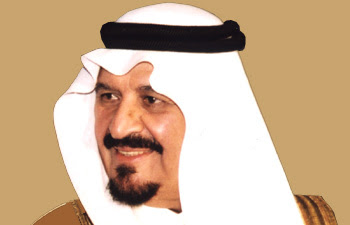For more than two centuries economists have steadfastly promoted free trade among nations as the best trade policy. Despite this intellectual barrage, many “practical” men and women continue to view the case for free trade skeptically, as an abstract argument made by ivory tower economists with, at most, one foot on terra firma. These practical people “know” that our vital industries must be protected from foreign competition.
The divergence between economists’ beliefs and those of (even well-educated) men and women on the street seems to arise in making the leap from individuals to nations. In running our personal affairs, virtually all of us exploit the advantages of free trade and comparative advantage without thinking twice. For example, many of us have our shirts laundered at professional cleaners rather than wash and iron them ourselves. Anyone who advised us to “protect” ourselves from the “unfair competition” of low-paid laundry workers by doing our own wash would be thought looney. Common sense tells us to make use of companies that specialize in such work, paying them with money we earn doing something we do better. We understand intuitively that cutting ourselves off from specialists can only lower our standard of living.
Adam Smith ’s insight was that precisely the same logic applies to nations. Here is how he put it in 1776:
It is the maxim of every prudent master of a family, never to attempt to make at home what it will cost him more to make than to buy.. . . If a foreign country can supply us with a commodity cheaper than we ourselves can make it, better buy it of them with some part of the produce of our own industry, employed in a way in which we have some advantage.
Spain, South Korea, and a variety of other countries manufacture shoes more cheaply than America can. They offer them for sale to us. Shall we buy them, as we buy the services of laundry workers, with money we earn doing things we do well—like writing computer software and growing wheat? Or shall we keep “cheap foreign shoes” out and purchase more expensive American shoes instead? It is pretty clear that the nation as a whole must be worse off if foreign shoes are kept out—even though the American shoe industry will be better off.
Most people accept this argument. But they worry about what happens if another country—say, China—can make everything, or almost everything, cheaper than we can. Will free trade with China then lead to unemployment for American workers, who will find themselves unable to compete with cheaper Chinese labor? The answer (see comparative advantage), which was provided by david ricardo in 1810, is no. To see why, let us once again appeal to our personal affairs.
Some lawyers are better typists than their secretaries. Should such a lawyer fire his secretary and do his own typing? Not likely. Though the lawyer may be better than the secretary at both arguing cases and typing, he will fare better by concentrating his energies on the practice of law and leaving the typing to a secretary. Such specialization not only makes the economy more efficient but also gives both lawyer and secretary productive work to do.
The same idea applies to nations. Suppose the Chinese could manufacture everything more cheaply than we can—which is certainly not true. Even in this worst-case scenario, there will of necessity be some industries in which China has an overwhelming cost advantage (say, toys) and others in which its cost advantage is slight (say, computers). Under free trade the United States will produce most of the computers, China will produce most of the toys, and the two nations will trade. The two countries, taken together, will get both products cheaper than if each produced them at home to meet all of its domestic needs. And, what is also important, workers in both countries will have jobs.
Many people are skeptical about this argument for the following reason. Suppose the average American worker earns twenty dollars per hour while the average Chinese worker earns just two dollars per hour. Won’t free trade make it impossible to defend the higher American wage? Won’t there instead be a leveling down until, say, both American and Chinese workers earn eleven dollars per hour? The answer, once again, is no. And specialization is part of the reason.
If there were only one industry and occupation in which people could work, then free trade would indeed force American wages close to Chinese levels if Chinese workers were as good as Americans. But modern economies are composed of many industries and occupations. If America concentrates its employment where it does best, there is no reason why American wages cannot remain far above Chinese wages for a long time—even though the two nations trade freely. A country’s wage level depends fundamentally on the productivity of its labor force, not on its trade policy. As long as American workers remain more skilled and better educated, work with more capital, and use superior technology, they will continue to earn higher wages than their Chinese counterparts. If and when these advantages end, the wage gap will disappear. Trade is a mere detail that helps ensure that American labor is employed where, in Adam Smith’s phrase, it has some advantage.
Those who are still not convinced should recall that China’s trade surplus with the United States has been widening precisely as the wage gap between the two countries, while still huge, has been narrowing. If cheap Chinese labor was stealing American jobs, why did the theft intensify as the wage gap fell? The answer, of course, is that Chinese productivity was growing at enormous rates. The remarkable upward march of Chinese productivity both raised Chinese wages relative to American wages and turned China into a world competitor. To think that we can forestall the inevitable by closing our borders is to participate in a cruel self-deception. Nor should there be any worry about failing to forestall the inevitable. The fact that another country becomes wealthier does not mean that Americans must become poorer.
Americans should appreciate the benefits of free trade more than most people, for we inhabit the greatest free-trade zone in the world. Michigan manufactures cars; New York provides banking; Texas pumps oil and gas. The fifty states trade freely with one another, and that helps them all enjoy great prosperity. Indeed, one reason why the United States did so much better economically than Europe for more than two centuries is that America had free movement of goods and services while the European countries “protected” themselves from their neighbors. To appreciate the magnitudes involved, try to imagine how much your personal standard of living would suffer if you were not allowed to buy any goods or services that originated outside your home state.
A slogan occasionally seen on bumper stickers argues, “Buy American, save your job.” This is grossly misleading for two main reasons. First, the costs of saving jobs in this particular way are enormous. Second, it is doubtful that any jobs are actually saved in the long run.
Many estimates have been made of the cost of “saving jobs” by protectionism. While the estimates differ widely across industries, they are almost always much larger than the wages of the protected workers. For example, one study in the early 1990s estimated that U.S. consumers paid $1,285,000 annually for each job in the luggage industry that was preserved by barriers to imports, a sum that greatly exceeded the average earnings of a luggage worker. That same study estimated that restricting foreign imports cost $199,000 annually for each textile worker’s job that was saved, $1,044,000 for each softwood lumber job saved, and $1,376,000 for every job saved in the benzenoid chemical industry. Yes, $1,376,000 a year!
While Americans may be willing to pay a price to save jobs, spending such enormous sums is plainly irrational. If you doubt that, imagine making the following offer to any benzenoid chemical worker who lost his job to foreign competition: we will give you severance pay of $1,376,000—not annually, but just once—in return for a promise never to seek work in the industry again. Can you imagine any worker turning down the offer? Is that not sufficient evidence that our present method of saving jobs is mad?
But the situation is actually worse, for a little deeper thought leads us to question whether any jobs are really saved overall. It is more likely that protectionist policies save some jobs by jeopardizing others. Why? First, protecting one American industry from foreign competition imposes higher costs on others. For example, quotas on imports of semiconductors sent the prices of memory chips skyrocketing in the 1980s, thereby damaging the computer industry. Steel quotas force U.S. automakers to pay more for materials, making them less competitive.
Second, efforts to protect favored industries from foreign competition may induce reciprocal actions in other countries, thereby limiting American access to foreign markets. In that case, export industries pay the price for protecting import-competing industries.
Third, there are the little-understood, but terribly important, effects of trade barriers on the value of the dollar. If we successfully restrict imports, Americans will spend less on foreign goods. With fewer dollars offered for sale on the world’s currency markets, the value of the dollar will rise relative to that of other currencies. At that point unprotected industries will start to suffer because a higher dollar makes U.S. goods less competitive in world markets. Once again, America’s ability to export is harmed.
On balance the conclusion seems clear and compelling: while protectionism is sold as job saving, it probably really amounts to job swapping. It protects jobs in some industries only by destroying jobs in others.
By Alan S. Blinder.





















